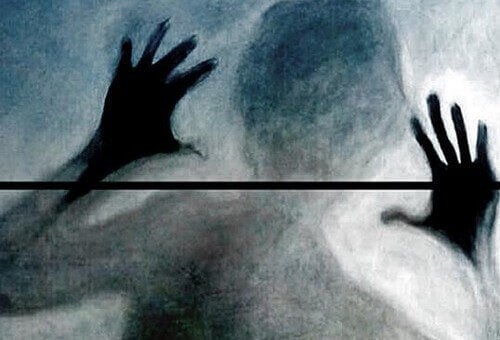Sometimes the behavior of others leaves us baffled, since often the behaviors are totally incomprehensible from our point of view, perhaps on several occasions you have already tried to understand the personality of the people around you and you have found yourself. unanswered.
You should know that our personality is not a perfectly carved solid rock, but a stone in which different depths and cracks differ, but sometimes these cracks can be so deep that they break, becoming the greatest feature of this concrete structure. The same goes for personality.
- Some often disturbing characteristics can appear in a person not as an exception.
- But as a pattern of behavior: this is what we call personality disorders.
A personality disorder is a person’s usual pattern of behavior that becomes apparent in late adolescence and early adulthood. This form of behavior tends to produce frequent changes and have great consequences on relationships with others.
What we see in personality disorders is that a certain characteristic becomes totally central to a person’s behavior, so, for example, while we all want to be the center of attention in certain situations, there are people who are not able to act under any circumstances. way if they’re not the focus at all times.
Knowing that certain inappropriate traits can become the usual way for a person to behave in different situations, to stay stable over time, we will explain what personality disorders are present in the population and what else cause discomfort around them:
People with this disorder are characterized by a general pattern of greatness and a need for admiration on the part of others, they have a high sense of self-importance, they care about fantasies of unlimited success, imaginary power, beauty, intelligence and love.
People with this disorder are characterized by mistrust and suspicion of their surroundings, so the intentions of others are always interpreted as malicious, continually believe that their environment conspires against them and that they continue to receive unfounded insults and accusations from some of us recognize these people because they always interpret our intentions with suspicion and suspicion.
All of this leads them to always take a step back when it comes to building an intimate relationship or offering their trust. Moreover, if they believe they have been betrayed, they hold grudges for a long time, with continuous references to what may have happened. It’s strange that this manifests the most intensely in romantic relationships, constantly believing that your partner is unfaithful.
In this personality disorder, there is a general pattern of instability in the interpersonal relationships and self-image of the person, as well as a remarkable impulsivity that begins in early adulthood and occurs in different contexts, so they often blame others for their own feelings of discomfort. .
With depression, this disorder seems to be the fastest growing disorder in the population, so we will explain it in more detail, people who suffer from this disorder are characterized by an unstable relationship pattern with others, everything seems to be either extremely positive or negative, without the possibility of being analyzed in a more pleasant way.
Many theories, such as the mentalization of Anthony Bateman and Peter Fonagy, say that this type of disorder leads people to understand themselves and others in subjective terms, that is, these people directly convert all anxiety into action, without passing by a mental filter. .
His discomfort, which cannot be understood rationally, materializes in compulsive acts: hence the self-harm and the high probability of suicide that exist in this disorder against others arise. Another of the most well-known therapeutic therapies is Marsha M Dialectical Behavior Therapy. Linehan.
She herself suffered from this disorder and developed her theory based on the idea that there is a biological predisposition to the disease, but it is environmental factors that trigger symptoms. Some films explore this disorder, such as the Interrupted Girl.
This disorder is part of personality-type anxiety disorders, people with personality-type anxiety disorders characterized by a pattern of behavior in which there is a widespread and excessive need to care for someone, causing submissive, addictive and scary behaviors of separation.
Dependents usually desperately seek a romantic relationship, even if they don’t feel any real emotional commitment, simply to avoid feeling helpless and not feeling alone. Sometimes they feel abandoned, trying to draw attention by going beyond certain limits and causing someone to blame others.
People with this disorder have a general pattern of excessive emotionality and constant seeking attention, are seductive, dramatic and enthusiastic in their urgency to achieve it, these behaviors are related to self-centeredness and the inability to assume some discomfort in their social relationships.
Apparently, they have good social skills, but their excessive drama and theatricality tend to erode their relationships with others, they do not tolerate frustration well and any abandonment or gesture of indifference can become an intolerable offense, causing deep discomfort.

